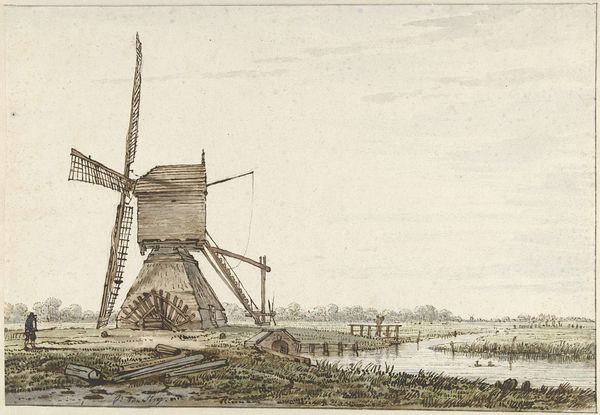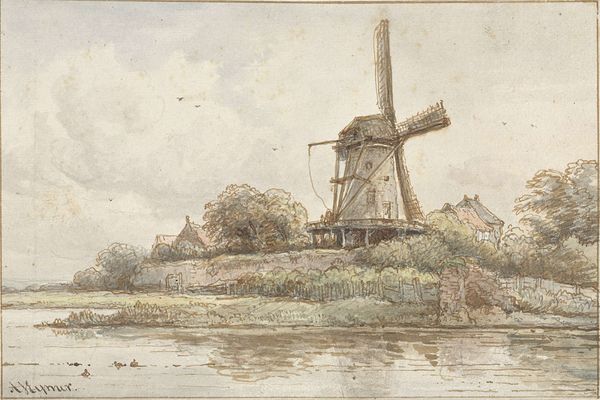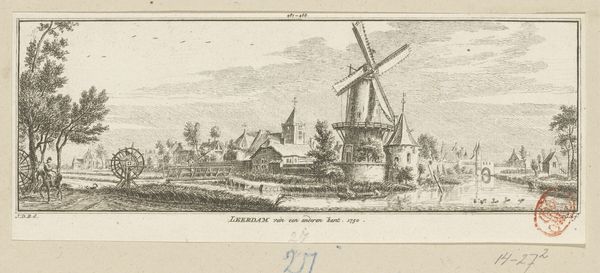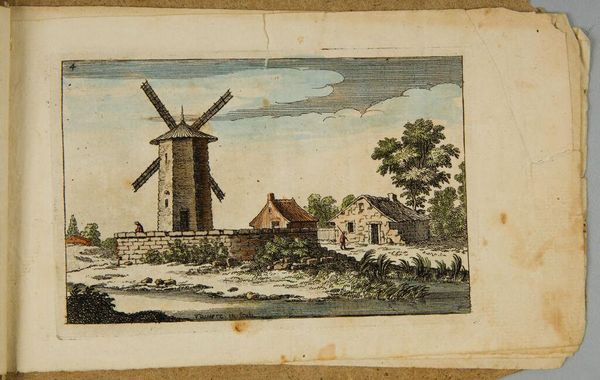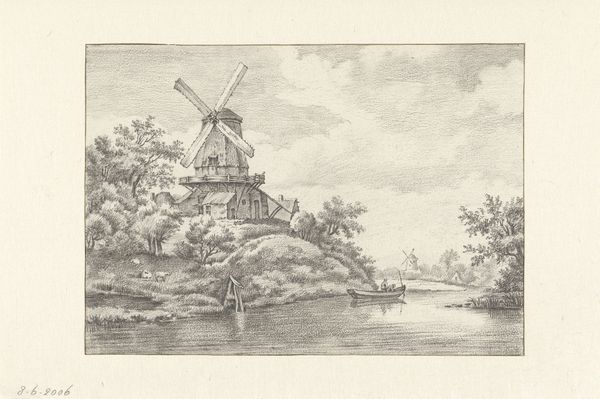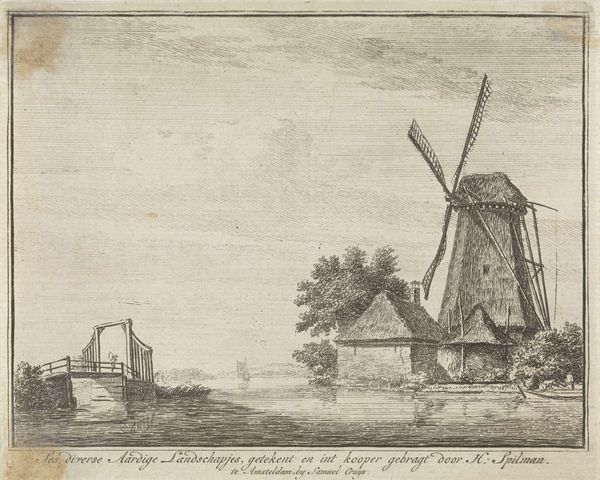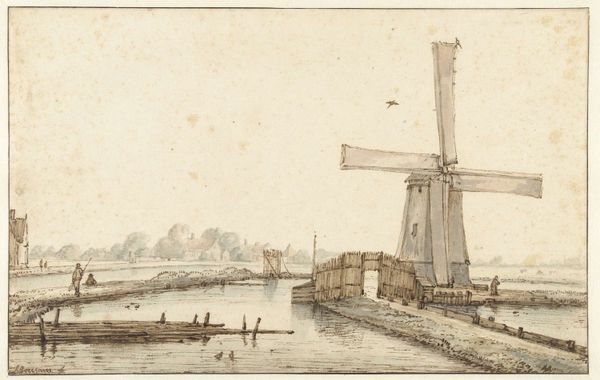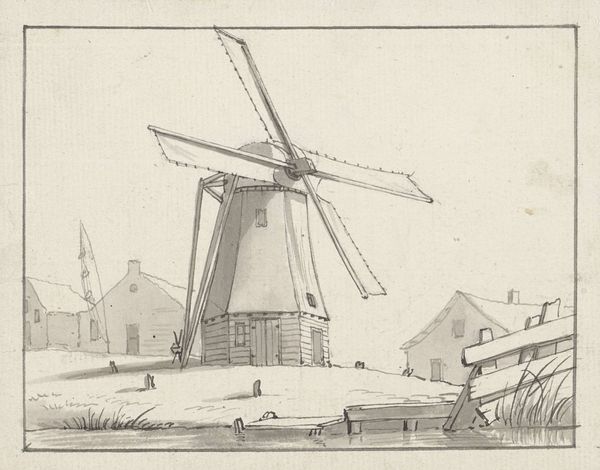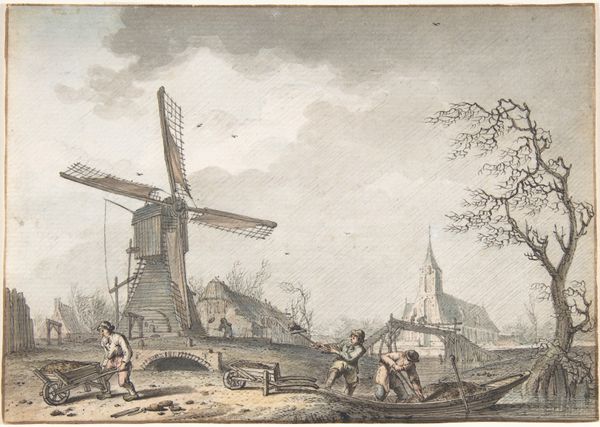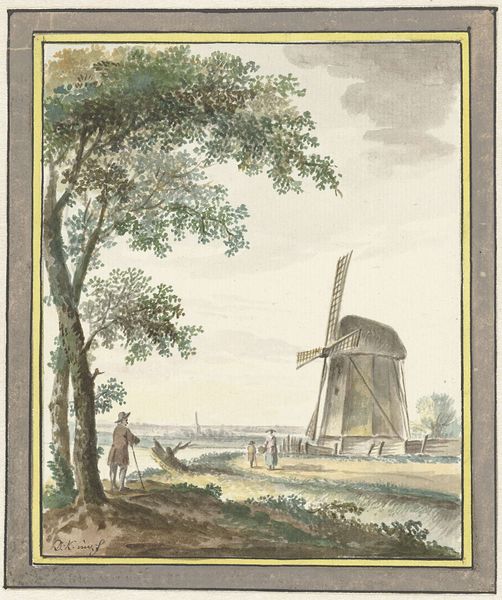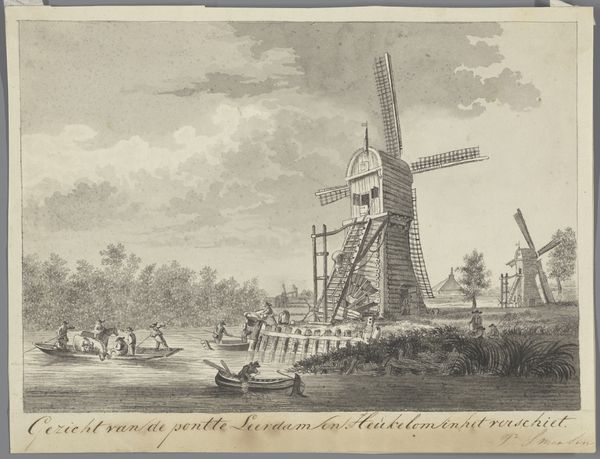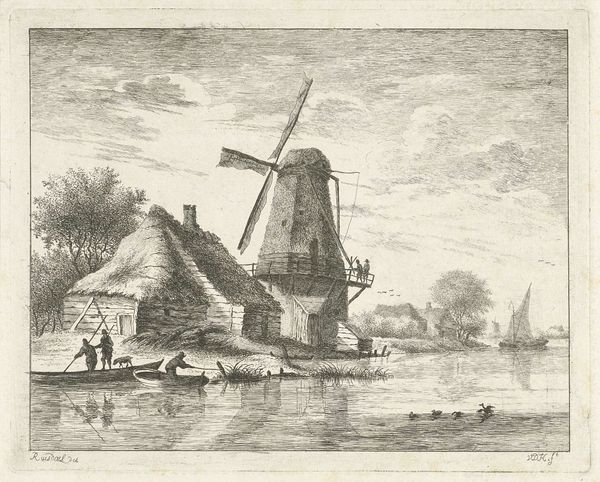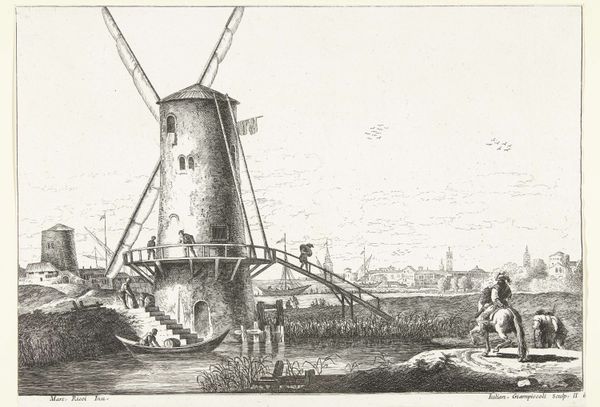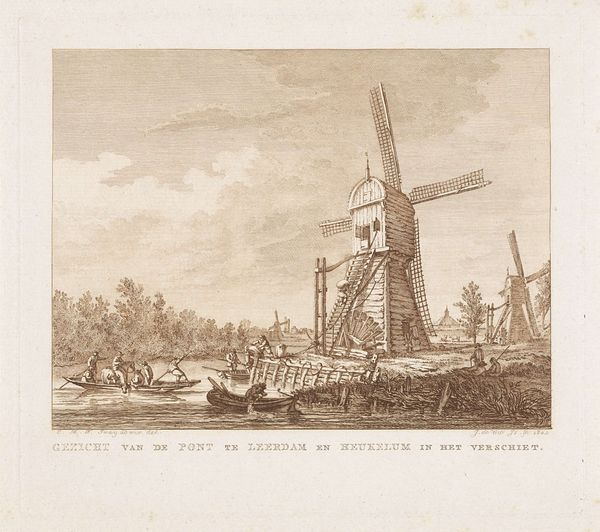
watercolor
#
baroque
#
landscape
#
watercolor
#
watercolour illustration
#
genre-painting
Dimensions: height 81 mm, width 205 mm
Copyright: Rijks Museum: Open Domain
Jan de Beijer made this watercolor drawing, titled "View of Tienhoven and the Herlaar House," sometime in the 18th century. De Beijer’s charming depiction of the Dutch countryside provides a window into the economic and social landscape of the time. We see a harmonious blend of nature and human activity, with the Herlaar House, windmill and church situated along the river. The windmill, a vital component of the Dutch economy, stands prominently, symbolizing the nation's mastery of water management and agricultural productivity. The presence of a stately home and church hints at the social hierarchy, with the elite landowners and religious institutions holding sway. Elements of leisure, such as a horse rider and hunting dog, suggest the lifestyles of the privileged. Historical records and estate archives can help us decipher the identities and social roles of the figures in De Beijer's scene. By studying such sources, we can gain a deeper understanding of art as a product of its time and a reflection of the society that produced it.
Comments
No comments
Be the first to comment and join the conversation on the ultimate creative platform.
